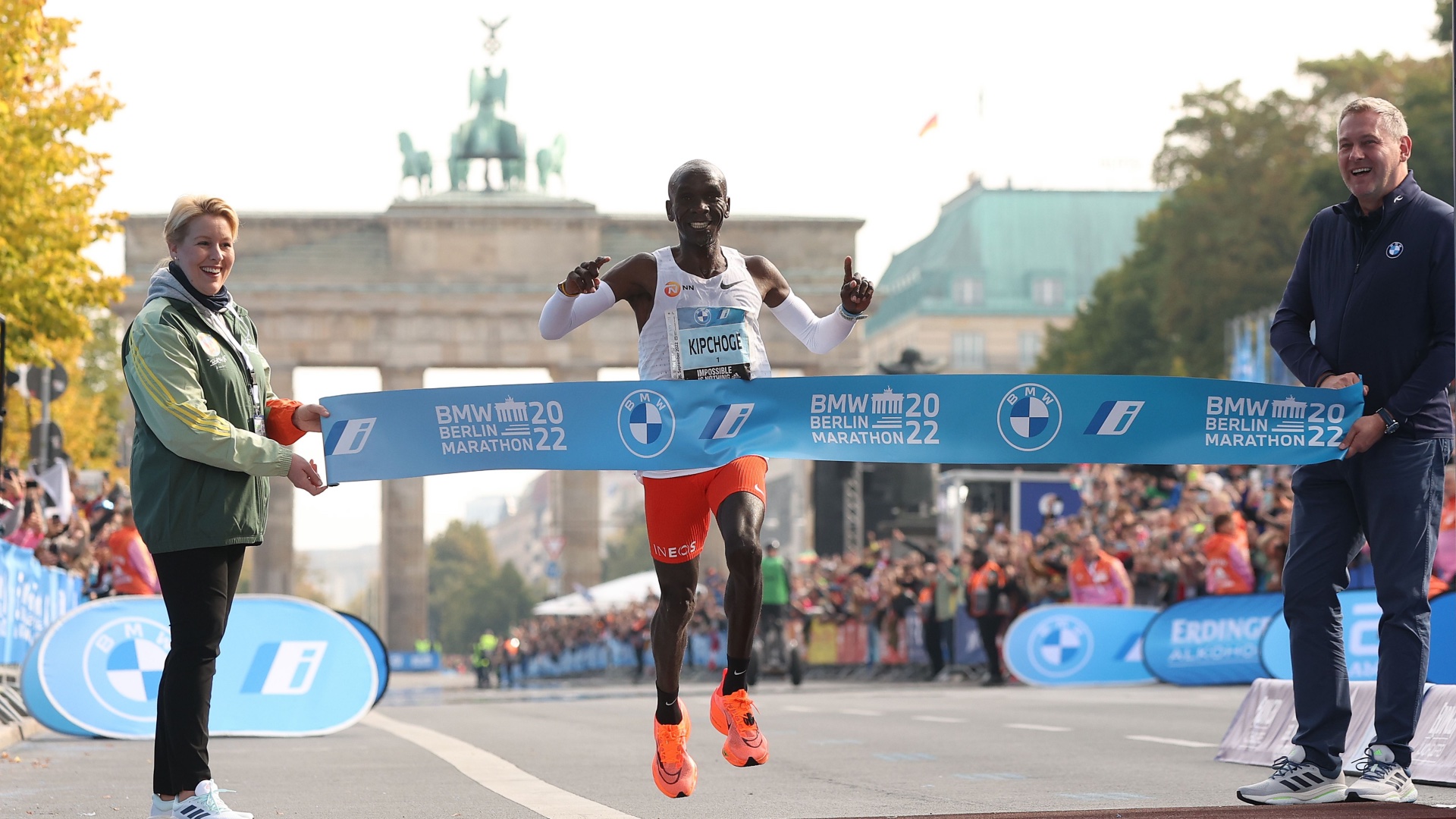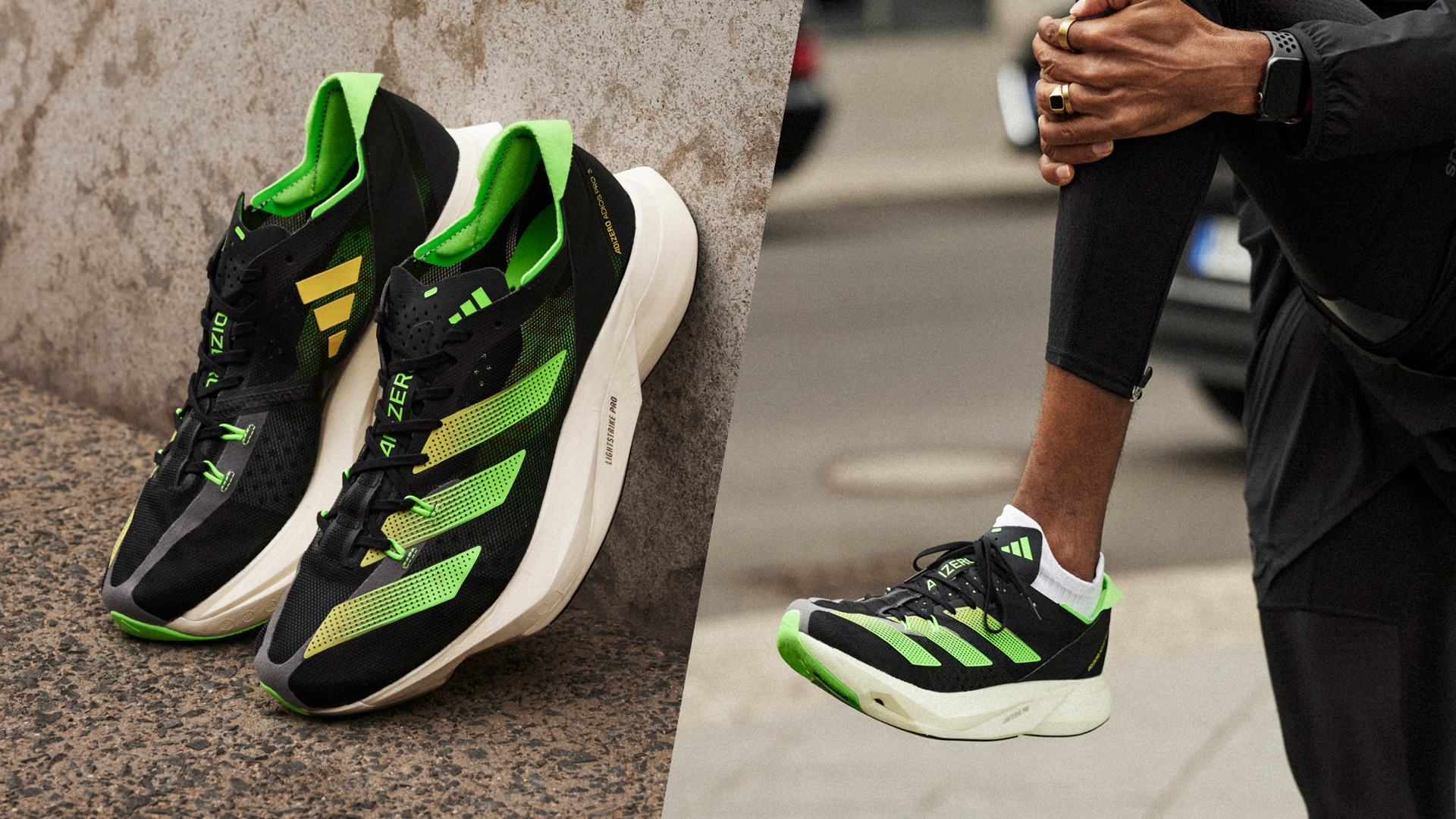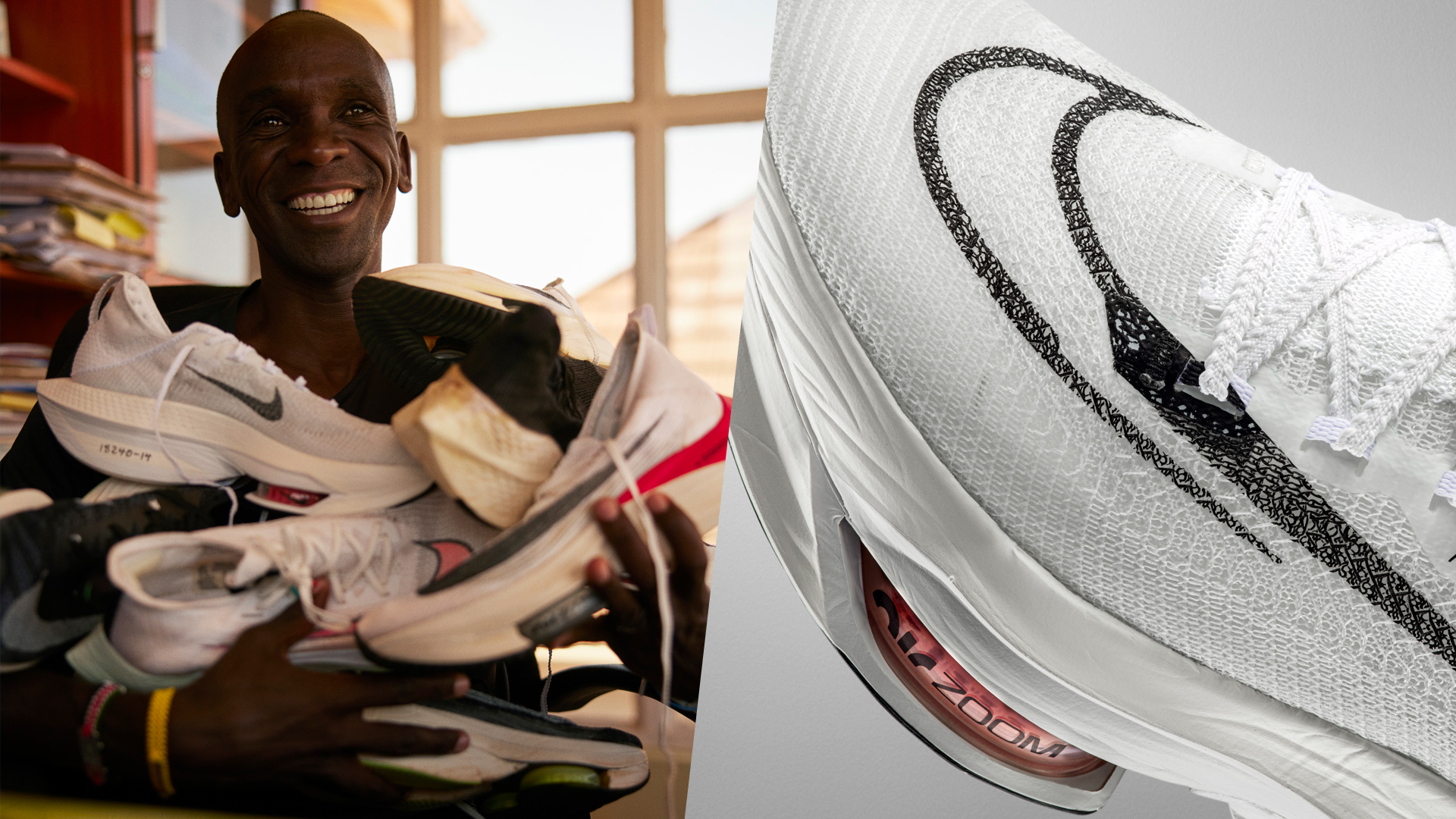Eliud Kipchoge ran a world record in the Nike Alphafly 2 – Could he have run that fast in different running shoes?
How much of Kipchoge's performance rely on the Nike Air Zoom Alphafly NEXT% 2?


On 25 September 2022, Kenyan runner Eliud Kipchoge crossed the finish line of the Berlin Marathon 2022 with a new world record time of 2:01:09, beating his own previous world record time of 2:01:39 set in 2018 also in the German capital. And he did it running in the Nike Air Zoom Alphafly NEXT% 2, some of the best Nike running shoes to date. Could he have won the marathon without wearing a different running shoe, though?
'How much do running shoes help runners' is a debate that's been going on for a while (forever, perhaps) and has been exacerbated by the arrival and subsequent dominance of the Nike ZoomX Vaporfly NEXT%, a brilliant and controversial running shoe that triggered the World Athletics to limit maximum stack height used in races to 40 mm.
Then, Kipchoge broke the 2-hour marathon distance record – unofficially, as it wasn't achieved in a race – using the original Alphafly (a prototype of it), sparking even more controversy about mechanical doping. Runners around the world started talking more and more about how unfair it was that people who used Nike's super shoes enjoyed an unfair advantage and how we should go back to the good old days of running barefoot, naked, like our ancestors.

How much tech is too much tech in running shoes?
Well, this might be a bit of an exaggeration but explains my point beautifully: where would those who say it's unfair to use super shoes might draw the line? There is no point in trying to stop running shoe advancement; the cat is out of the bag. Yes, stack height is currently limited to 40 mm, and companies can only have one plate in the midsole, but there are plenty of other avenues to discover, avenues I have no doubt will be discovered in the near future.
But back to Kipchoge and his superhuman performance – how much of it can be pegged on the shoes? Is he so fast because used the latest Nike running tech? Would he be able to go this fast if he wore different running shoes, maybe the Adidas Adizero Adios Pro 3, the ASICS METASPEED SKY+ or maybe the Saucony Endorphin Pro 3?

Would Kipchoge be as fast as he is in the Adizero Adios Pro 3?
Let me start by saying that Eliud is an amazing athlete; I'm not going to use the word talented because that would take away from his achievements. He trains diligently, puts the work in, lives and breathes running, and is determined enough to be successful. None of these things has anything to do with talent. Talent is overrated.
Eliud could outrun 99% of the world population barefoot, I'm sure of it; he's just that skilled as a runner. His world record pace at the Berlin Marathon 2022 was 2:52 min/km (that's 4.05 min/mile), which is insane. I sometimes sprint slower than that. Normal human beings can't run that fast at all, let alone for two hours. But could he run that fast without wearing the Alphafly?
Get all the latest news, reviews, deals and buying guides on gorgeous tech, home and active products from the T3 experts
In 2013, Kipchoge won his first marathon title in Hamburg with a time of 2:05:30 – that's four minutes slower than his current world record time. Throughout the last decade, his times got better gradually, and needless to say, there wasn't a massive jump when he started using the Alphafly. Shaving off four minutes of your marathon PB over a period of 10 years while training almost religiously hasn't got anything to do with shoes.

Eliud Kipchoge + Nike Air Zoom Alphafly NEXT% 2 = Match made in heaven
Of course, at Eliud's level, we're talking about marginal gains, and people might argue that to take a whopping 30 seconds off his own best time from a few years ago, he needed top gear. I agree, but I also think that if Adidas or ASICS sponsored Kipchoge, we would be having this conversation about the Adios Pro or the Endorphin Pro. Eliud doesn't need the Alphafly to beat his records – he 'only' needs a super shoe.
That said, we might never know how he'd perform in other shoes, as at this point, I see no reason why he or Nike would end their relationship, as it works equally as well for all parties involved. Eliud can use one of the best running shoes today in his races, and Nike can use his insight and image to create and sell the shoes. Why would anyone disturb this status quo?

Matt Kollat is a journalist and content creator for T3.com and T3 Magazine, where he works as Active Editor. His areas of expertise include wearables, drones, action cameras, fitness equipment, nutrition and outdoor gear. He joined T3 in 2019.
His work has also appeared on TechRadar and Fit&Well, and he has collaborated with creators such as Garage Gym Reviews. Matt has served as a judge for multiple industry awards, including the ESSNAwards. When he isn’t running, cycling or testing new kit, he’s usually roaming the countryside with a camera or experimenting with new audio and video gear.